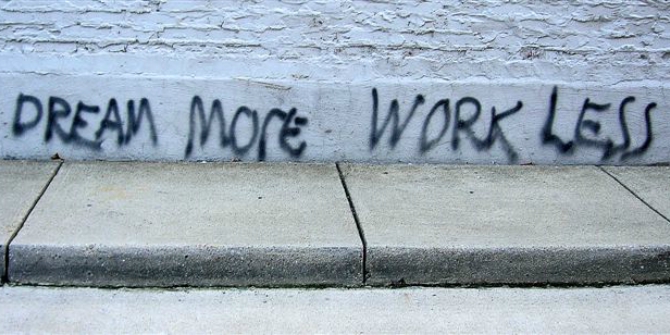
In modern workplaces, employers seek more flexibility in their management practices than before. This involves decisions concerning the number and composition of personnel, job design, productivity, and profit. Those concerned over employees health and well-being have set their eyes on organisational downsizing and questioned whether such practices are affecting employees’ health and well-being.
When organisations downsize, those who lose their jobs are often the focus of attention as the true victims. Losing a job obviously risks the household’s income. Furthermore, having a job involves factors which are important for the well-being of individuals such as the social relations that come with a job, and the social status and social identity it provides. Losing a job therefore can involve major changes and is regarded among the more stressful events an individual can experience.
Those who keep their job during downsizing may not appear to be going through big changes in comparison to those who are laid-off. They are referred to as survivors of downsizing, implying a better outcome. However, there now exist a number of studies on the experience of working in a downsized organization which show that escaping lay-off is not all about feeling relieved or secure. On the contrary, the downsized workplace may go through various changes, increasing the stress among remaining employees due to additional tasks and higher workloads, faster pace of work and less supportive resources on the job. Also, employees may feel guilty having kept their job while their colleagues were laid-off. They may also have realized that their job is insecure and they could just as well be laid-off in the near future. Thus, the quality of jobs in a downsized organization may change for the worse.
Job loss and unemployment have negative effects on health and well-being. But as organizational downsizing can result in lower job quality, those who keep their job are also at health risk. The question thus arises – is it less damaging for the health and well-being of employees to survive the downsizing than it is to lose the job?
In research we conducted among bank employees in Iceland, who all worked in the Icelandic banks that collapsed in the fall of 2008 during the economic recession, we had the opportunity of observing the health and well-being of both employees who lost their job through downsizing as well as those who kept their job. As the banks comprised 85% of the nation’s banking system, their collapse seriously threatened the nation’s economy, which led to a rescue plan with the Icelandic government stepping in and changing the banks from large private international enterprises into public domestic banks. This led to about 20% of the employees being laid off.
Six months into the organizational changes, we distributed questionnaires, where we asked several questions about the experience of working in the changed banks and the experience of being laid-off. We also asked the participants about their health and well-being. When we compared the health and well-being of those employees who kept their jobs to those who lost their jobs we found that the latter reported better health and higher well-being. Further analysis showed that those who were laid-off and re-employed to a full time job reported the highest well-being and the best health of all the groups. On the other hand, those employees who kept their jobs but felt insecure perceived the worst health and the lowest well-being of all groups. Those employees who felt secure on the job reported health and well-being similar to those who had become unemployed following the lay-off. This applied to both women and men employees.
The main results of our study indicate that being laid-off during downsizing is not necessarily the worst outcome. Staying on the job may involve such stress and discomfort that it exceeds the stress of being laid-off and even becoming unemployed. This is quite remarkable, as having a job is generally related to better health and higher well-being than not having one. This makes us question who are the actual victims of organizational downsizing?
Surely, organizational downsizing is a major event for employees, both those who stay and those who are laid-off. Maintaining a healthy and a safe work environment is the responsibility of every employer. With this study in mind, it clearly points out the importance of employers to focus on interventions to improve the work environment following downsizing and minimize the risks for ill health and low well-being among employees.
♣♣♣
Notes:
- This article is based on the authors’ paper The health and well-being of bankers following downsizing: a comparison of stayers and leavers, in Work, Employment and Society, 2015, Vol. 29(5) Pages 738–756.
- This post gives the views of its authors, not the position of LSE Business Review or the London School of Economics.
- Featured image credit: Landsbankinn, Reykjavík, by Christian Bickel, Wikimedia Commons
 Ásta Snorradóttir is a specialist and a researcher in the research and health department at the Administration for occupational safety and health in Reykjavík, Iceland. She holds a PhD in Sociology from the University of Iceland where she currently also teaches sociology of work and occupations. Her research interests include precarious work, the psychosocial work environment and the health and well-being of employees. She has authored and co-authored research papers on these topics.
Ásta Snorradóttir is a specialist and a researcher in the research and health department at the Administration for occupational safety and health in Reykjavík, Iceland. She holds a PhD in Sociology from the University of Iceland where she currently also teaches sociology of work and occupations. Her research interests include precarious work, the psychosocial work environment and the health and well-being of employees. She has authored and co-authored research papers on these topics.

Guðbjörg Linda Rafnsdóttir is Professor of Sociology at the University of Iceland and affiliate for the Center for Research on Gender in the Professions, University of California, San Diego (UCSD). Her research interest include working life, occupational health and well-being, gender segregation at work, work-life balance, welfare and virtual work/ICT. She has authored and co-authored a number of papers on these topics.
 Kristinn Tómasson is the Medical Director of the Administration for occupational safety and health in Reykjavík, Iceland. His research interests include mental health, psychosocial work environment, occupational accidents, and occupational health. He has authored and co-authored a number of papers on these topics.
Kristinn Tómasson is the Medical Director of the Administration for occupational safety and health in Reykjavík, Iceland. His research interests include mental health, psychosocial work environment, occupational accidents, and occupational health. He has authored and co-authored a number of papers on these topics.
 Runar Vilhjalmsson is professor of sociology at the Faculty of Nursing, University of Iceland. He has published numerous scientific articles in national and international journals in the areas of adolescent health-related behavior and well-being, social support and adult mental health, and organization of health services and access to health care. Runar is a past editor of Acta Sociologica and is currently chairman of the Icelandic State University Professors’ Union.
Runar Vilhjalmsson is professor of sociology at the Faculty of Nursing, University of Iceland. He has published numerous scientific articles in national and international journals in the areas of adolescent health-related behavior and well-being, social support and adult mental health, and organization of health services and access to health care. Runar is a past editor of Acta Sociologica and is currently chairman of the Icelandic State University Professors’ Union.





